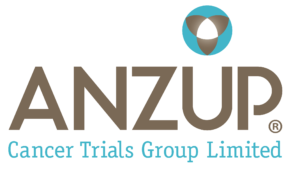CLIMATE
Testicular — Recruiting
CLIMATE
Testicular cancer is the most common cancer diagnosed in people aged between 15 and 39 in Western countries, however it can occur at any age. Most people diagnosed with testicular cancer will have cancer confined to the testicle, without evidence of spread to other areas of the body. These men are highly likely to fully recover following surgical removal of the testicle (orchidectomy) alone, and most will not require additional chemotherapy or radiotherapy. Sometimes, a person may choose to undergo preventive chemotherapy or radiotherapy, which reduces the risk of their cancer coming back; however, this may result in long-term side effects for some people.
For this reason, most people in Australia are recommended “active surveillance,” which involves regular reviews with their doctor, computerised tomography (CT) scans and blood tests, but no chemotherapy or radiotherapy.
With this approach, most people will be spared from unnecessary treatment and side effects. However, a small number of these people will have recurrent cancer detected during active surveillance. Reassuringly, these people are also highly likely to have a positive outcome following additional treatment.
A new blood test, micro-ribonucleic acid (miRNA), which evaluates a protein commonly found in testicular cancer is under investigation. Early studies have found that miRNA is detectable in blood samples of people who have known testicular cancer.
If you think this trial might be right for you, please ask your doctor.
If you think this trial might be right for you, please ask your doctor.
Trial Title
Assessing the Clinical utility of miR-371a-3p as a marker of residual disease in Clinical Stage 1 Testicular Germ Cell Tumour, following orchidectomy.
Cancer Type
Testicular
Trial Status
Recruiting
Protocol Number
ANZUP1906
Trial Email
Co-ordinating centre
Study Chair
Associate Professor Ben Tran
Study Objective
To estimate the negative predictive value (NPV) and positive predictive value (PPV) of
post-orchidectomy miR-371 in predicting relapse within 12 months.
Patient Population
CLIMATE will recruit adult patients commencing active surveillance for clinical stage I (CSI) seminoma or NSGCT.
Primary Outcome
12-month relapse free-survival in post-orchidectomy miR-371-positive and miR-371-
negative populations
Recruitment Target
200 participants
Detailed Information
Latest Publication
Participating Centres
NSW
Chris O'Brien Lifehouse - Sydney Local Health District
St Vincent's Hospital - Sydney
Calvary Mater Newcastle
Sydney Adventist Hospital
VIC
Peter MacCallum Cancer Centre
Epworth Hospital
Eastern Health
Austin Health
Barwon Health
QLD
Royal Brisbane & Women's Hospital
Princess Alexandra Hospital
NZ
Te Whatu Ora Southern – Dunedin Hospital
